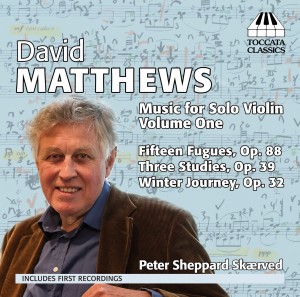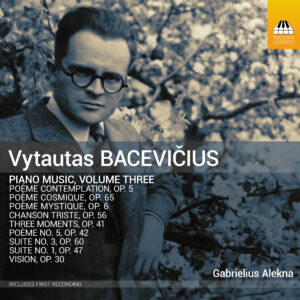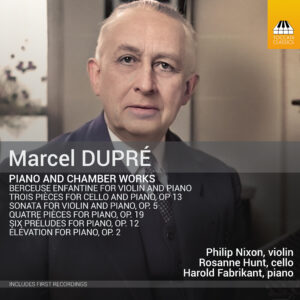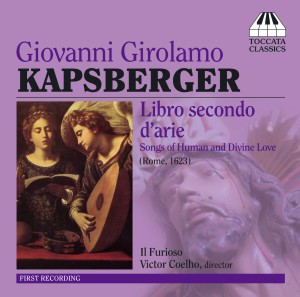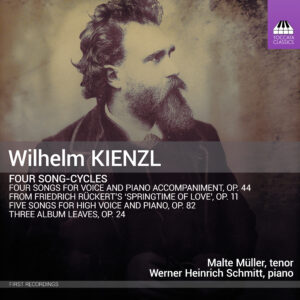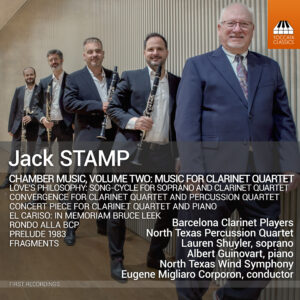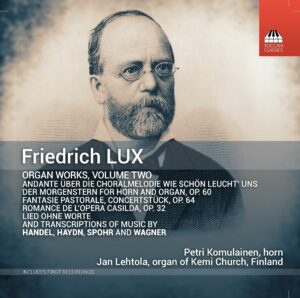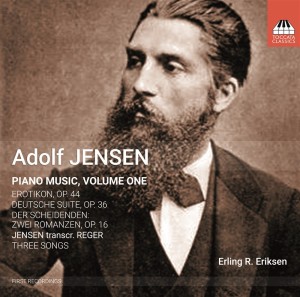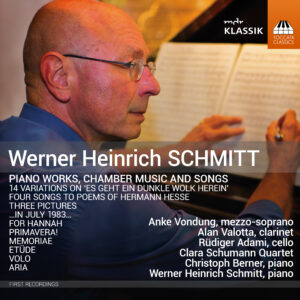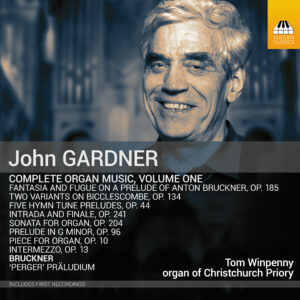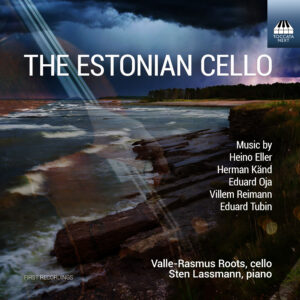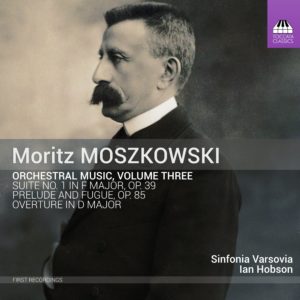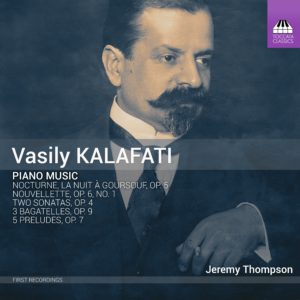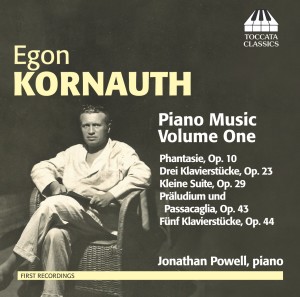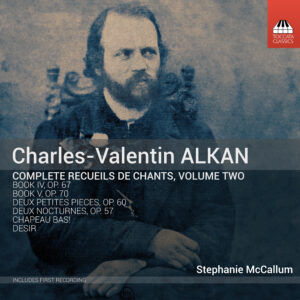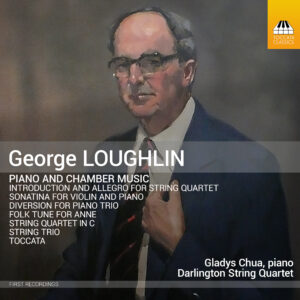Search Results for "Space Wolf: The First Omnibus mp3 torrent" – Page 11
David Matthews: Music for Solo Violin, Volume One
David Matthews' Fifteen Fugues for solo violin, composed over four years between 1998 and 2002, not only constitute what is probably the largest set of violin fugues by a living composer; they also form an extended essay in musical portraiture, with each fugue 'depicting' its dedicatee. Like the Three Studies (1985) and Winter Journey (1982-83), a tone-poem for solo violin inspired by Schubert's Winterreise, they pose extraordinary technical challenges to the performer.
Peter Sheppard Skærved, violin
Vytautas Bacevičius: Piano Music, Volume Three
The Lithuanian pianist and composer Vytautas Bacevičius (1905–70) – exiled to the New World by the outbreak of the Second World War – is one of the undiscovered pioneers of the twentieth century. This third volume of his piano music presents works written between 1926 and 1959 and shows the evolution of his musical language from the post-Skryabin style of the early works, via the influence of Debussy, Prokofiev and Stravinsky, to a highly individual modernism that can occasionally nod to the jazz of his adoptive New York. It is a testament to the strength of Bacevičius’ personality that his musical identity remains consistent even as his manner evolves – his individuality is never in doubt, not least because of his enduring fondness for a playful gesture.
Gabrielius Alekna, piano
Marcel Dupré: Piano and Chamber Works
Marcel Dupré (1886–1971) was the most prominent French organist of his generation, playing hundreds of recitals on his international tours, and his compositions have entered the standard organ repertoire. But his piano and chamber works have not received the same attention. They are audibly French – there are points of contact with Chabrier, Fauré and Satie – but they go their own surprising way, occasionally taking on a ritual, even hypnotic, character that imparts an oriental, quasi-minimalist, flavour.
Philip Nixon, violin
Rosanne Hunt, cello
Harold Fabrikant, piano
Giovanni Girolamo Kapsberger: Libro secondo d’arie — Songs of Human and Divine Love
Giovanni Girolamo Kapsberger (1580–1651) was one of the most innovative and original composers in early seventeenth-century Rome, and a virtuoso on the lute and chitarrone, or theorbo. His Second Book of Arias, published in Rome in 1623, for one and two voices, are extraordinary works that reveal both his vivid imagination in setting poetry to music, and his flair for dramatic gestures, making him one of the most quintessentially 'Baroque’ composers of his time.
Il-Furioso
Victor Coelho, director
Wilhelm Kienzl: Four Song-Cycles
The Austrian composer Wilhelm Kienzl (1857–1941) – also a pianist, conductor, musicologist and writer on music – enjoyed the esteem of his contemporaries particularly for his vocal music. But his star has waned over the past century, and only a handful of his 238 songs have had recent recordings. In style they range from the simple and folk-like to the dramatic and quasi-operatic; their harmonic world likewise embraces both the diatonic and chromatic, with hints of the influence of Schubert, Schumann, Brahms, Wagner and a foretaste of later composers. The four song-cycles recorded here treat the grand themes of life: love, loss, death and man’s interaction with nature.
Malte Müller, tenor
Werner Heinrich Schmitt, piano
Jack Stamp: Chamber Music, Volume Two
Celebrating his 70th birthday on March 5th, the American composer John Stamp (b. 1954) – universally known as ‘Jack’ – is a familiar figure in the worlds of the symphonic wind-band movement that flourishes in US universities and of the brass band on both sides of the Atlantic. When the Barcelona Clarinet Players asked him for a new work, and then proposed this album, he had to create the repertoire from scratch. The range of moods he has generated here is surprisingly wide, from gentle night-music that caresses the ear, via jaunty fugal textures and buoyant counterpoint, to catchy dance-rhythms that set the foot tapping.
Barcelona Clarinet Players
North Texas Percussion Quartet
Lauren Shuyler, soprano
Albert Guinovart, piano
North Texas Wind Symphony
Eugene Migliaro Corporon, conductor
Friedrich Lux: Organ Works, Volume Two
Friedrich Lux (1820–95) was one of those musicians who formed the fabric of musical life in nineteenth-century Germany: though he worked away from the major cities, as conductor, teacher, organist, organiser and composer, he was an indispensable element of the communities in which he worked. His large body of organ music, as good as unknown before now, brings together elements of the musical language of Bach, Mendelssohn and Schumann, in works that range from the intimate to the grandiose.This second volume brings some of his many transcriptions to the fore.
Petri Komulainen, horn
Jan Lehtola, organ of Kemi Church, Finland
Adolf Jensen: Piano Music, Volume One
Adolf Jensen (1837–79) is one of the major figures of German Romanticism, the composer of a large corpus of songs and piano music. Jensen’s musical language fuses the heritage of Schumann, Chopin and Liszt into an individual style distinguished by its melodic and lyrical appeal, and yet he has been almost entirely forgotten. This first in a series of recordings of his music hopes to restore his name to circulation.
Erling R. Eriksen, piano
Werner Heinrich Schmitt: Piano Works, Chamber Music and Songs
Werner Heinrich Schmitt, born in Mannheim in 1961, began to study the piano in boyhood, and soon started to compose as well. Since then he has earned his living as a pianist, writing music as time permitted. This first album of his works reveals a composer of considerable substance, particularly in the two moving song-cycles that book-end this album. The sensitivity and resourcefulness of Schmitt’s aural imagination are confirmed in the chamber and piano pieces heard here. Some are infused with joy, others with sorrow, but they all speak a musical language that aims to speak to the listener directly.
Anke Vondung, mezzo-soprano
Alan Valotta, clarinet
Rüdiger Adami, cello
Clara Schumann Quartet
Christoph Berner, piano
Werner Heinrich Schmitt, piano
John Gardner: Complete Organ Music, Volume One
The music of the English composer John Gardner (1917–2011) – basically tonal and always impeccably crafted – is characterised by rhythmic vivacity and harmonic immediacy. His musical fingerprints come from his love of jazz, Renaissance and Baroque procedures and his mastery of imitative counterpoint; his use of established musical forms invests them with a quirky and distinctive harmonic idiom. This first album of two collecting his entire output of organ music presents not only his sly humour but also the staggering contrapuntal craftsmanship of his fugue on a theme by Anton Bruckner – one of the monuments of recent British writing for the organ.
Tom Winpenny, organ of the Christchurch Priory
The Estonian Cello
The strength and richness of Estonian classical music has its origins in two contrasting schools – the international outlook taught by Heino Eller in Tartu and the craftsmanship fostered by Artur Kapp in Tallinn. This album presents Eller’s complete output for cello and piano in its first recording, complemented by works by two of his more important students, Eduard Oja and Eduard Tubin. Villem Reimann and Herman Känd, both students of Kapp, had very different careers, Reimann an established professor in Soviet Estonia, and Känd dying unknown in American exile at only 46. This is the first recording of any of his music in over half a century.
Valle-Rasmus Roots, cello
Sten Lassmann, piano
Moritz Moszkowski: Orchestral Music, Volume Three
The Polish composer Moritz Moszkowski (1854–1925) is best remembered for a handful of virtuoso piano pieces, but he also produced a substantial body of orchestral music, most of it unperformed for a century or more. This third volume presents his very first orchestral work, a strikingly assured Overture in D major, written when he was seventeen, and his last, a sombre, dignified and deeply felt Prelude and Fugue for strings, composed on the death of his mother in 1910. Between them comes Moszkowski’s First Orchestral Suite, from 1885, a joy from start to finish, with one delightful inspiration following another in a daisy-chain of dance-rhythms, memorable tunes and instrumental colour.
Sinfonia Varsovia
Ian Hobson, conductor
Andrzej Krzyżanowski, flute (Track 8)
Vasily Kalafati: Piano Music
The name of Vasily Pavlovich Kalafati (1869–1942), born to Greek parents in the Crimea, has a toe-hold in the history books as one of Stravinsky’s teachers, but he was an accomplished composer in his own right. The early piano works recorded here show the influence of Rimsky Korsakov (his teacher and friend) and other Russian-nationalist composers, but they also owe something to the examples of Chopin and Brahms, not least in their blend of passion and textural clarity. The vigour of these pieces stands in stark contrast to the ultimate fate of their composer: he starved to death during the Siege of Leningrad.
Jeremy Thompson, piano
Egon Kornauth: Piano Music, Volume One
The music of the Czech-born Viennese composer Egon Kornauth (1891-1959) was once a staple of Austrian concert-halls, though it has largely been forgotten in the half-century since his death. In this pioneering recording Jonathan Powell uncovers the many strands that fed into Kornauth's rich and full-blooded soundworld — dark, late-Romantic harmony, inventive counterpoint, rhythmic assiduity, a fondness for folk-music and, not least, a straightforward melodic charm.
Jonathan Powell, piano
Charles-Valentin Alkan: Complete Recueils de Chants, Volume Two
The wild originality of Charles-Valentin Alkan was little appreciated during his lifetime (1813-88), nor during the century which followed, when he was largely lost from sight. But now Alkan is increasingly recognised as one of the most individual personalities in all music. The five albums he called Recueils de chants — miniature tone-poems which marry Classical constraint to virtuoso Romantic excess — provide an attractive gateway to his freewheeling imagination.
Stephanie McCallum, piano
George Loughlin: Chamber and Instrumental Music
The Liverpudlian George Loughlin (1914–84) was appointed professor of music at the University of Melbourne in 1958, remaining in that post for 21 years. That he was also a composer was generally unknown – a former colleague, hearing one of the pieces on this album, exclaimed: ‘That’s George?’ The earliest works here are audibly by an English composer, one who knew his Vaughan Williams, and blend an honest sincerity with fleet-footed wit. The approach of the later pieces is more philosophical and searching, the harmony more at ease with dissonance and the melodic lines more angular – in both peppy counterpoint and long-breathed lyricism.
Gladys Chua, piano
Darlington String Quartet
Stay In the Know
JOIN THE TOCCATA NEWSLETTER
"*" indicates required fields
By visiting our site, you agree to our privacy policy regarding cookies, tracking statistics, etc.
